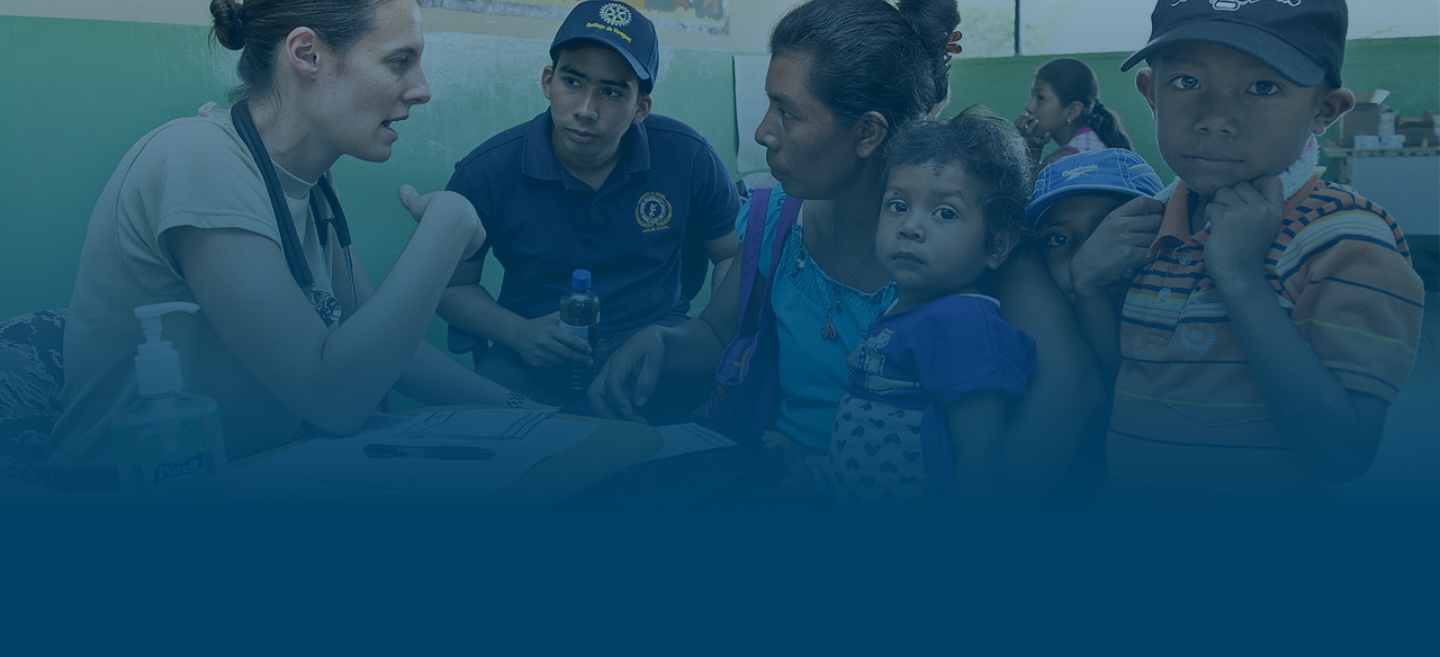Analyze the organization, structure and function of health care, as well as public health and regulatory systems across national and international settings.
MPH Concentration: Global Health
Address Today’s Pressing Global Health Issues with MPH@GW
The Milken Institute School of Public Health at George Washington University has been training leaders in public health and health services administration since 1959.
As the needs of the healthcare landscape have evolved, so have our programs. The MPH@GW Global Health concentration is designed to prepare the next generation of global health professionals — wherever they live — with the values, knowledge, and skills to address today’s pressing global health issues, while also being informed by a thorough assessment of the best available evidence.
Our core MPH curriculum and expert faculty will prepare you to:
Design population-based policy, program, project or intervention.
Advocate for political, social or economic policies and programs that will improve health in diverse populations.
MPH@GW Curriculum and Program Competencies
Designed to accommodate full- and part-time students, MPH@GW offers two accelerated options — 12 and 18 months — that mirror the on-campus degree requirements.
These requirements include the following 45 total credits:
17
core public health course credits
10
program-specific course credits
10
required concentration course credits
6
elective course credits
2
culminating experience credits
Graduates will finish the program with higher-level competencies, and will be able to:
Interpret and critique research and best practices to inform the development of evidence-based solutions for global health challenges.
Analyze multilevel determinants in global health problems that form the basis for disease control strategies and interventions.
Develop strategies to meet the health needs of children globally.
Recommend strategies to prevent and control environmental and occupational exposures that are linked with climate change.
Apply multidisciplinary perspectives to identify, analyze, and address global health challenges.
Global Health curriculum
Required program-specific courses
Students must complete the following program-specific courses:
- PUBH 6500 Program Planning and Evaluation
- PUBH 6052 Practical Data Management and Analysis for Public Health
- PUBH 6442 Comparative Global Health Systems
- PUBH 6503 Introduction to Public Health Communication and Marketing
Required courses
After completing MPH@GW core courses, you will transition into concentration-specific courses. The following courses are required for the Global Health concentration:
- PUBH 6400 Global Health Frameworks
- PUBH 6486 Global Health Programs and Approaches to the Control of Infectious Diseases
- PUBH 6563 Global Child Health
- PUBH 6128 Global Environmental and Occupational Health
- PUB 6480 Public Health in Complex Emergencies
Elective courses
You may also choose from the following recommended electives when completing your course requirements:
- PUBH 6132 Water, Sanitation and Hygiene (WASH) in Low-Income Countries
- PUBH 6140 Global Climate Change and Air Pollution
- PUBH 6450 Global Health Diplomacy
- PUBH 6451 Monitoring and Evaluation of Sexual and Reproductive Health Programs in Low- and Middle-Income Countries
- PUBH 6452 Social and Behavior Change Communication in Middle- to Low-Income Countries
These courses will prepare you to evaluate and implement public health policies targeted at underserved populations.
Career Paths for Global Health Students
A graduate of our Global Health concentration can pursue several career paths. The field is predicted to grow 17% from 2020 to 2030, with numerous job opportunities currently arising.1
With a concentration in Global Health, you will be prepared to pursue careers in areas such as health policy, community program management and social work. Examples of career paths for global health specialists include:
Improve the Health of Your Community With MPH@GW
Learn how our online Master of Public Health program can prepare you for a career impacting public health across global communities.
1Health Education Specialists and Community Health Workers, Bureau of Labor Statistics. (Accessed May 25, 2022).arrow_upwardReturn to footnote reference
2Epidemiologists, Bureau of Labor Statistics. (Accessed May 25, 2022).arrow_upwardReturn to footnote reference
3Health Education Specialists and Community Health Workers, Bureau of Labor Statistics. (Accessed May 25, 2022).arrow_upwardReturn to footnote reference



